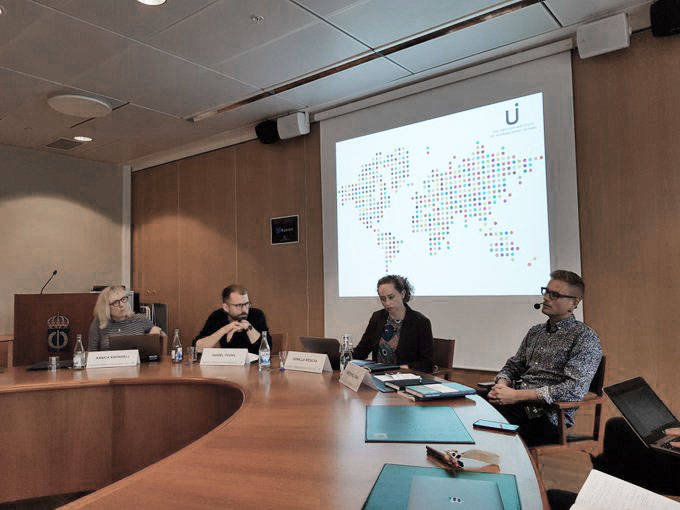
Highlights from 'Climate change as identity politics'
On 5 September, the Swedish Institute of International Affairs held a roundtable discussion, bringing together academics who explore the increased political polarization of climate change from a variety of perspectives. Listen to speakers Annica Kronsell, Martin Hultman and Daniel Poohl in The UI Podcast.
Professor Annica Kronsell focuses her research on environmental social science, governance and gender. She begins her presentation by stating that climate change has gone from being a purely meteorological matter to a governance issue, paved with injustices. In her talk, she emphasizes the importance of having an intersectional perspective when approaching environmental issues.
'Intersectional analysis of climate change governance suggests that we understand power as relational, as categories of difference. But also that we recognise how intersectional power not only relates to groups in society but to governance, policy and institutions. We can work with these insights to question privilege and increase inclusion. It might bring in alternative knowledge, visions and ways of thinking that might be needed in this time.'
Daniel Poohl is CEO of Expo foundation and a journalist specialising in far right extremism. In this talk, he examines why the majority of parties in the far right spectra denies climate change, despite the fact that many of them have been part of, or contained traces of, the green movement in the past. Poohl highlights an exemplifies how the complexity of far right movements must be understood.
'When the green movement started it was an anti-establishment movement. So if you wanted to be anti-establishment, as the far right always want, you had to be ecological. Today it is almost impossible for far right political parties to take that kind of position because the voters don’t want it.'
Dr. Martin Hultman asks the question of why we are not acting on climate change when it has been on the global agenda for 30 years. In this talk, he presents his research on masculinity and climate change, highlighting both the rise and spread of alternative climate research and how risk taking among privileged groups in society affects the climate.
'My interest in this issue started when me and a colleague looked into the climate change debate in Sweden 2006-2009. What we saw there was the embryo of counter science organising around climate change denial arguments in Sweden. We found that a certain group of men with influential positions within industry and academia was spreading ideas of climate change denial from the U.S. where they had been prominent for a couple of years back. We were puzzled about the fact that this group was so homogenous.'